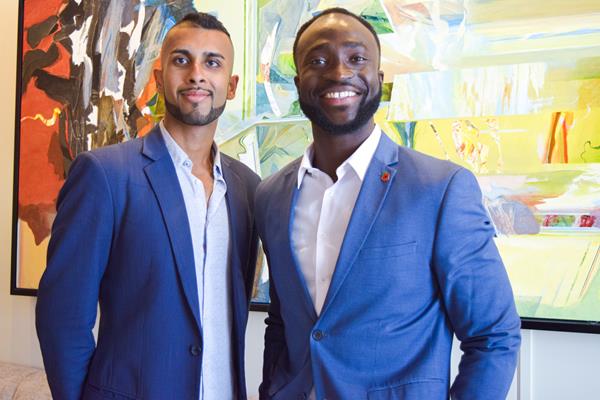Esusu raises $130M Series B to attain unicorn status, led by SoftBank Vision Fund 2

Esusu, a New York-headquartered fintech startup that targets immigrant and minority groups and provides rent reporting and data solutions for credit building scores, announced on Thursday that it has raised $130 million in a Series B fundraising round.
The round was led by SoftBank Vision Fund 2 with participation from Jones Feliciano Family Office, Lauder Zinterhofer Family Office, Schusterman Foundation, SoftBank Opportunity Fund, Related Companies and Wilshire Lane Capital.
Motley Fool Ventures, the lead investor from its $10 million Series A round last July, re-invested in this new financing round. Other existing investors like Concrete Rose Capital, The Equity Alliance, Impact America Fund, Next Play Ventures, Serena Ventures, Sinai Ventures, and TypeOne Ventures doubled down on their investment. In total, Esusu has raised over $144 million.
The investment has now taken Esusu’s valuation to $1 billion, placing it in a unique group of few black-owned and led startup ups globally that have achieved the coveted unicorn valuation out of over 900 companies. They include U.S. scheduling app Calendly valued at $3 billion; U.K.-based fintech Zepz at $5 billion and digital insurance startup Marshmallow at $1.2 billion; and African fintechs, Flutterwave ($1 billion), Chipper cash ($2 billion) and Interswitch ($1 billion).
Esusu is co-founded by a Nigerian-born American, Abbey Wemimo and Indian American Samir Goel who both grew up in immigrant homes and experienced firsthand the financial exclusion experienced by immigrants in America. They started the company in 2018 to build the credit scores of this marginalized group and “leverage data to bridge the racial wealth gap” through rental payments.
Immigrants and African Americans have lower or non-existent credit scores than other populations. To a large extent, they also witness more predatory lending, putting them in a cycle of financial insecurity. So, while they need strong credit scores to build wealth, they do not have access to build credit.
The founders in a chat with TechCrunch said Esusu has a 600% year-over-year growth rate. Over 2.5 million homes currently use its service, representing over $3 billion in Gross Lease Volume (GLV) across the U.S., up from 2 million homes and more than $2.4 billion in Gross Lease Value the company reported six months ago.
In April 2020, Esusu launched a rent relief fund after carrying out a survey on its platform that showed that 62% of its users would not be able to pay their rent on time due to the pandemic’s effects. The company raised almost $500,000 via crowd funding and nonprofit impact investment funds.
Two years on, that program still runs and Esusu has scaled it to keep thousands of renters in their homes. The program has garnered partners with more than $1.7 billion on their balance sheet, they explained.
“We founded Esusu with the vision of using data to bridge the racial wealth gap and create more equitable financial opportunities for low-to-moderate-income households in this country,” Wemimo and Goel said in a statement. “By establishing and improving credit scores, we are strengthening financial identities while empowering individuals, families, and communities to meet their long-term financial goals.”
How Esusu works
Esusu captures on-time rental payment data of renters who opt-in to its platform and reports to the three major credit bureaus–Equifax, TransUnion and Experian–to strengthen their credit scores. This way, renters can work their way to better credit scores over time while Esusu helps property owners mitigate against initiating evictions.
Esusu charges property managers and owners a $3,500 set-up fee and $2 per unit monthly. Renters, on the other hand, pay an annual subscription fee of $50 to report their rental payment data to credit bureaus.
The fintech start up partners with property owners, housing providers and works with 35% of the largest landlords on the National Multifamily Housing Council (NHMC) list. Its partners include Goldman Sachs, Related Companies, Starwood Capital Group and Winn Residential. Esusu plans to use the funding to scale its team (triple its employees to be exact), “turbocharge growth through product innovation, and build the most comprehensive financial health platform in the market.”
